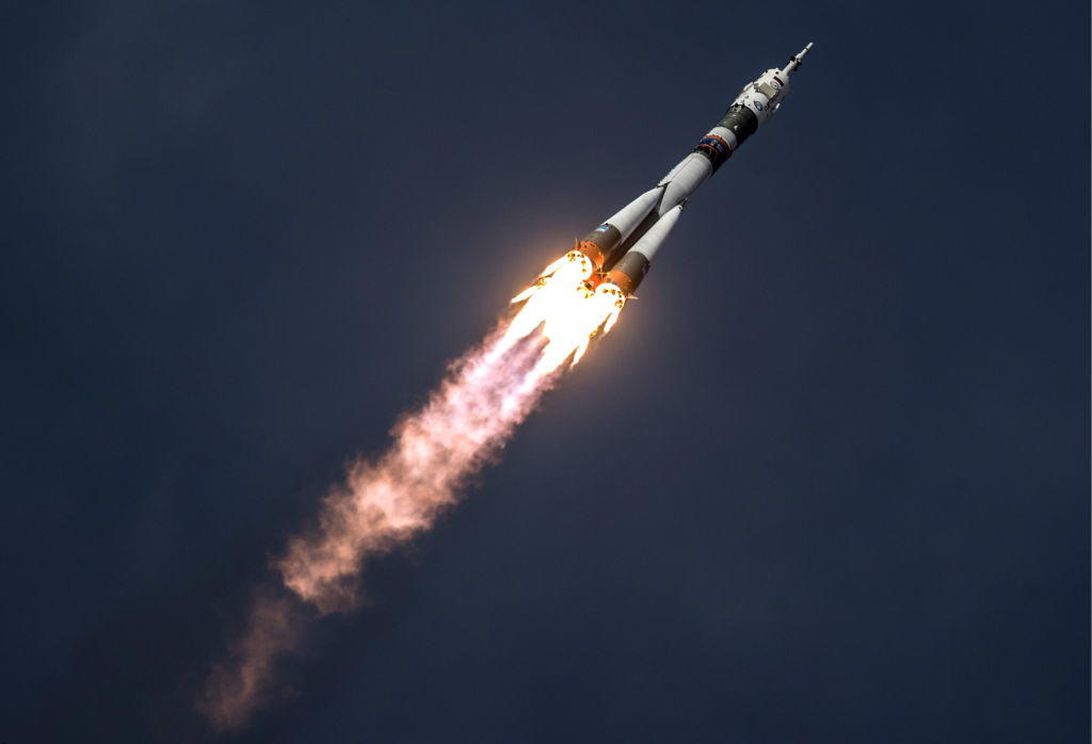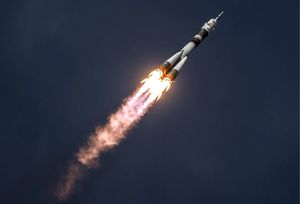
Sergei Savostyanov/TASS
#18SPCS has confirmed the reentry of the IPM 3/PERSEY (#50505, 2021-133A) at 13:08 PDT on 5 Jan, 2022, over the Pacific Ocean. #spaceflightsafety
Typically, large rockets or spacecraft that are expected to re-enter the atmosphere are steered into a remote part of the ocean. However, uncontrolled re-entries do happen from time to time, like the widely followed return of China’s Tiangong-1 space station in 2018. They’ve rarely resulted in much damage or casualties, although there have been unconfirmed reports of Chinese rocket boosters falling on to rural communities.
A Russian rocket in flight. A new upper stage fell to Earth on Wednesday following a failed test.
Unlock the biggest mysteries of our planet and beyond with the CNET Science newsletter. Delivered Mondays.
“I do NOT regard this object as a significant risk,” leading orbit watcher and astronomer Jonathan McDowell said on Twitter. “Reentries for a object with dry mass of about 4 tonnes may see some debris reach the ground, but not much.”
The rocket is thought to have weighed around 20 tons, but over 75% of that mass would have been in fuel that almost certainly would have burned up in the atmosphere.
— 18th Space Control Squadron (@18SPCS) January 5, 2022
The Persei booster was launched on Dec. 27 by the heavy-lift Angara-A5 rocket for a test mission. However, the upper stage booster failed to enter the Earth’s orbit as planned. Instead, it began inevitably being pulled back toward the atmosphere by Earth’s gravity for an expected return to the surface in bits and pieces (if at all) on Wednesday afternoon, Pacific time.
The 18th Space Control Squadron of the US Space Force confirmed that the rocket re-entered over the Pacific Ocean just after 1 p.m. PT on Wednesday.






